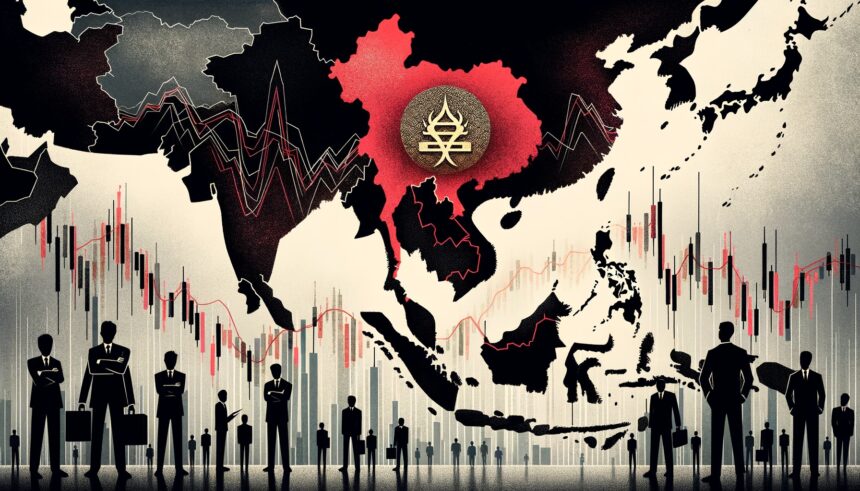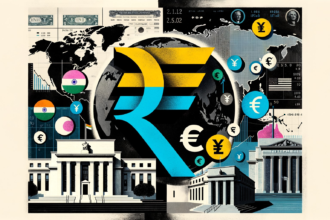What’s going on here?
The Thai baht fell by up to 0.5% against the dollar, leading declines among Asian currencies. With several Asian markets closed for holidays, subdued trading was driven by lower gold prices and ongoing political turbulence in Thailand.
What does this mean?
Political instability in Thailand is casting a long shadow over its financial markets. Analysts from ANZ and Krung Thai Bank note that uncertainties, including a pending court case that could oust the prime minister, have made the country’s currency and equity markets underperformers this year. The turmoil is scaring off foreign investors despite attractive valuations of Thai stocks and bonds. Across the South China Sea, the Chinese yuan remained flat and shares fell by about 0.6% following disappointing property sector data and the People’s Bank of China’s decision to leave a key interest rate unchanged.
Why should I care?
For markets: Asian markets on edge.
Most Asian stock markets saw declines amid broader economic uncertainties. Seoul’s index slid by 0.5%, Bangkok’s dropped by 1.15%, Tokyo’s dipped by 2.1%, and Taipei’s slipped by 0.24%. The sole bright spot was Hyundai Motor, whose shares jumped 6.3% after plans to list its Indian unit in Mumbai. Investors are also eyeing US retail sales data due on Tuesday, as the Federal Reserve’s recent projections indicated a potential rate cut later this year.
The bigger picture: Global winds of change.
Political and economic tensions in Asia are significantly influencing market dynamics. In Thailand, political chaos is not just a local issue but a broader signal impacting investor confidence in the region. Meanwhile, in China, stagnant property sector growth and cautious monetary policy reflect underlying economic fragility. Globally, Temasek’s plan to invest up to $198 million in Australian ETF manager Betashares and the Philippines reporting a 3.2% increase in cash remittances highlight that international funds and cross-border financial flows continue to seek stability and opportunity amid localized instabilities.




















